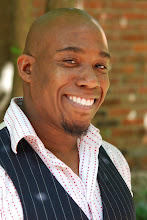I recently read a post from an artistic director about a 19 year-old soprano looking to audition who called herself “a young dramatic soprano.” The artistic director was immediately put off mainly because the girl who was still learning how to sing had already labeled herself and was hoping to audition under that label. I thought that this was a rare phenomenon, but I recently heard several young singers proclaiming themselves as a Verdi this or a Puccini that. I was surprised because many of these singers were making these assessments based on their own small singer friend arena and not on the knowledge and experience of international level teachers, conductors or coaches. I find it fascinating that singers who are in the beginnings of their careers and still fine-tuning their techniques are so certain of what their voices are. We all have to sing the roles that are right for our voices and there certainly are young singers with big voices. A tenor with a fuller instrument may not be able to negotiate the demands of Mozart’s Ferrando, but does that mean he jumps right into Calaf?
I have always been reticent to call myself anything besides a baritone. (And that took several years as when I was younger some people thought I might be a tenor.) Labels like lyric, dramatic, Verdi, bel-canto are helpful when one is trying to figure out which roles to sing, but if you’ve never done any of those roles, how can deem yourself a specialist? I would love to focus on the operas of Rossini Donizetti, Verdi and the French repertoire, yet I am just NOW getting hired to sing those roles. Later in the season, I will be singing my fifth Rossini role (which I love) and I would be more than happy to sing as much Rossini that comes my way, but a few years ago as much I wanted to sing every Rossini baritone role, I had to first learn how to sing.
In our fast-paced and competitive society, everyone wants to stand out. But something people forget when they label themselves in an attempt to be categorized, once you call yourself a Wagner soprano, you place the expectation of what Wagner sopranos who are working sound like. Soprano Christine Goerke recently had a smashing success as the Dyer’s Wife in Strauss’ “Die Frau ohne Schatten.” She always had a large instrument and yet she sang Mozart, Handel, and Gluck roles early on and is just now taking on Turandot, Ariadne and the heavier Strauss and Wagner roles. This explains why she has survived for so long. It’s been a slow ascent, but now she is poised to be one of the most exciting dramatic voices of our generation.
Instead of placing a stamp on one’s self early in the process, I think it’s important to have a sold technique. Once the contracts start coming in and companies start hiring you for a specific composer several times, then perhaps the label can be added to the voice type. Until then be a mezzo or a baritone and sing your audition arias (lyric something or other) well. Yes, they should all be of the same fach to avoid confusion, but some wonderful advice I’ve always heard is to ere on the lighter side. Do you want to call yourself a big-voiced lyric (who sings in big houses all over the world) or a lighter-voiced self-labeled dramatic who has no idea if they can even sustain the entire role let alone over an entire orchestra in a large hall.
Peace,
Eric
Saturday, December 21, 2013
Subscribe to:
Post Comments (Atom)

No comments:
Post a Comment